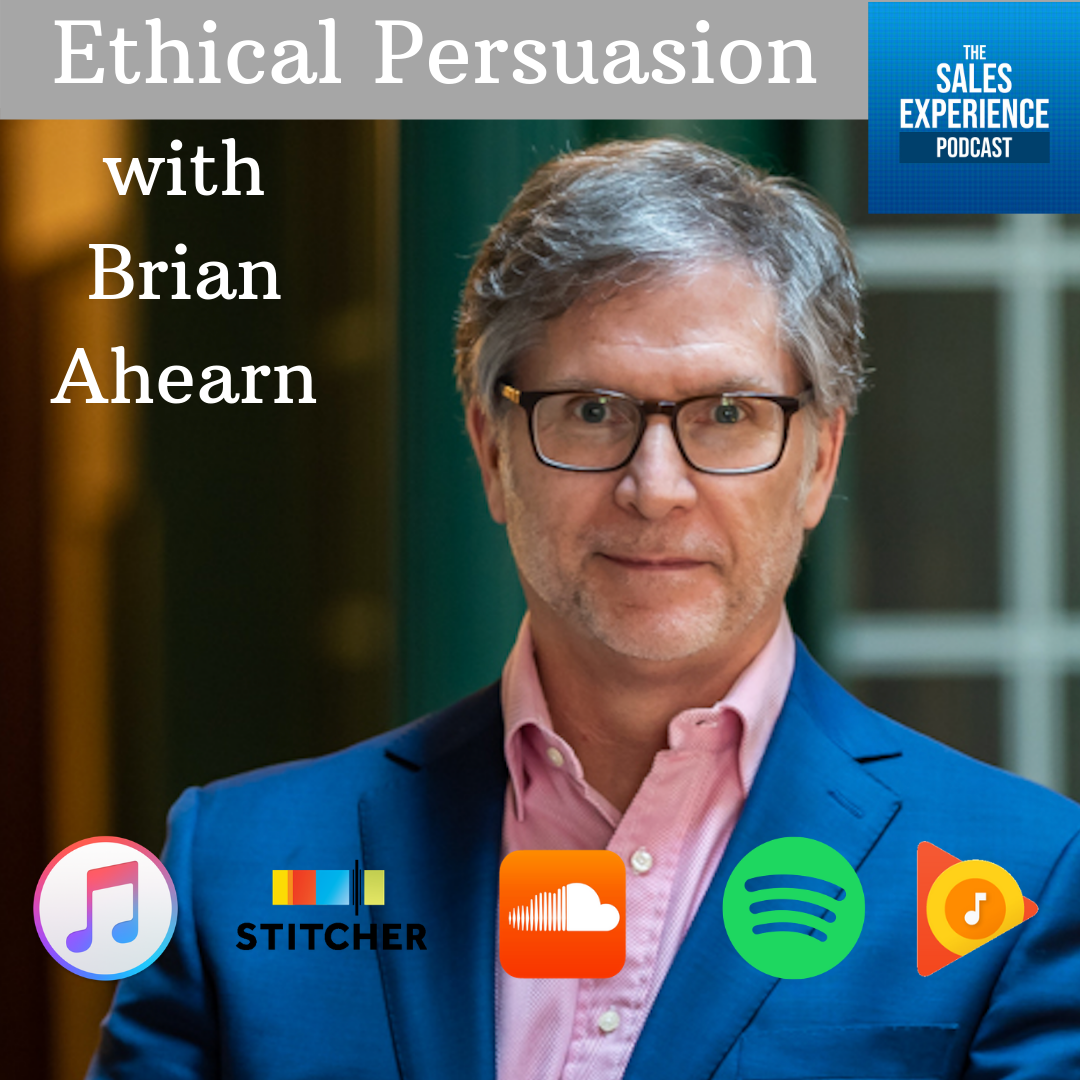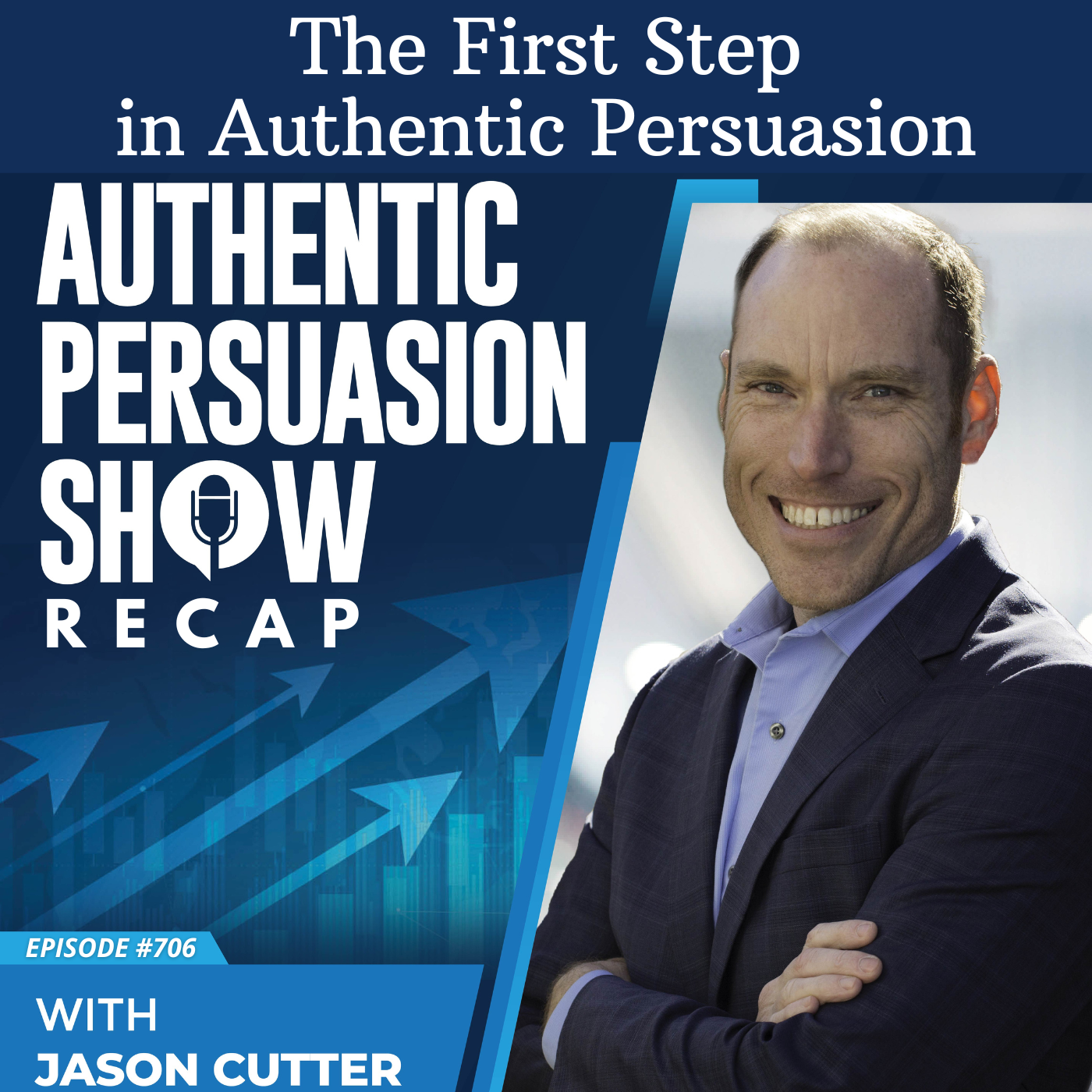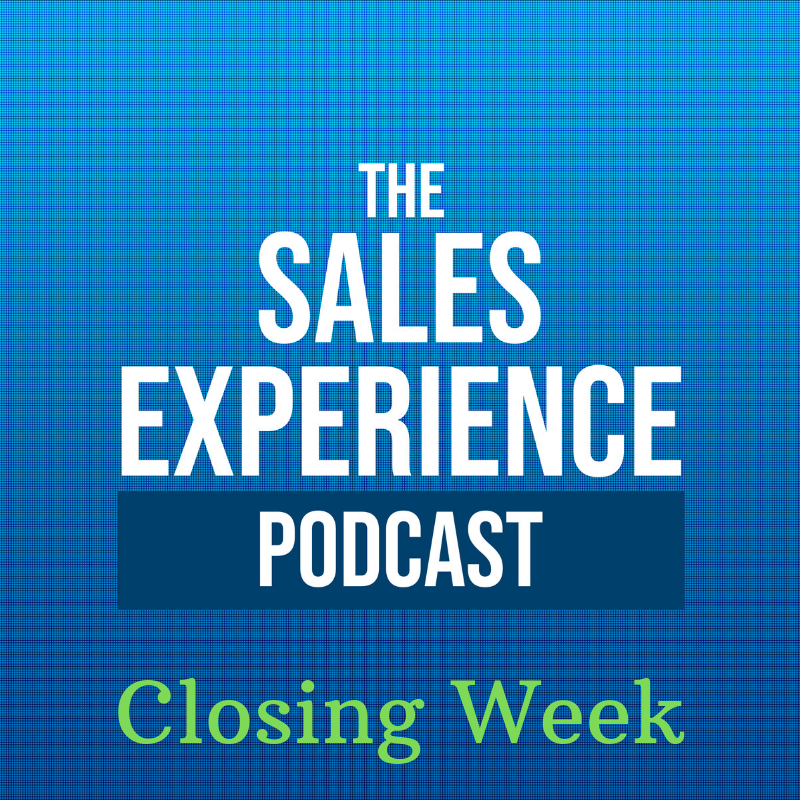Episode Transcript
Jason: Welcome back to the sales experience podcast. This is part three in the conversation with the fun, amazing. fellow banana slug, Dan Englander, if you don't know what that means, make sure to catch part one, but it's the mascot for UC Santa Cruz, which is always fun and silly, but we talk about marketing. We talk about sales in the marketing and managing salespeople, interviewing, hiring, training.
A lot of sales related stuff, but how it fits into what his experience has been from a marketing company that's selling to marketing companies, but everything in life is sales. So if you didn't make sure to check out parts one and two, here you go. Part three, my conversation with Dan
Darryl: might be a destructive exercise as opposed to one where you're just adding more complexity.
So I think that that's what we see a lot of the time. There are ways in which certain things become simpler and easier once you get focused.
Jason: And I think that's an important thing. That's a good business evolution for both business owners. Cause I see that a lot with the companies I work with where it's like, okay, they're doing these nine things.
It's like, let's just do these two and focus and hyper focus and then trim the rest and it becomes amazing. Same thing with salespeople. I mean, that's the thing I work a lot with them is just go back to the basics, do some fundamental things, do what works and don't worry about all the other bells and whistles and the add ons from a sale, like even conversations, like don't worry about saying this and doing all these things, just literally focus on these couple of things that work really well and then go from there.
Darryl: Yeah, it's kind of like the bad news is you have to go to the gym every day. The good news is you don't have to use every machine at the gym. You just use the barbell or whatever. Exactly.
Jason: Yeah. And the nice thing about the gym is once you're done, you feel much better. Getting there and starting doesn't always feel good, but once you're done, it always feels good.
Speaking of which, since you're talking about the gym top is a funny segue. One of the things we had chatted about before was one of the cycles that happens either for companies, for businesses, for consulting, for agency, I'm sure for a lot of things. Is if they get busy with the doing the processing, whatever the fulfillment is, then sometimes they slow down or stop the sales because they're too busy.
Right? I see that a lot, especially with solopreneurs, coaches, consultants, where they get some clients, they get too busy, they stopped doing the sales and marketing. Cause they're too busy. And when we had talked, you're like, yeah, doing sales is like going to the gym. I mean, you gotta go to the gym and eat healthy every day.
If you want to stay in shape, no matter what.
Darryl: Yeah, absolutely. And this is like a really big thing in the agency world and I get it. I still have that force kind of moving me. away from sales. When we get busy, it happens organically, whether I want it to or not, I'm going to feel less inspired to go make cold calls.
And I know we've got a completely full roster and I'm balancing process stuff for campaigns. But at the same time, I've done sales for long enough for so many years. And if something feels missing, it's sort of like a feeling of like being in the jungle, waiting for the enemy to attack. It's like where it's like too quiet.
It really does become a gym. dynamic where if you haven't worked out in a few days, even if you're in perfect health and feel good, you know that something's off. Right? So I think that it's not always a healthy thing to be too worried. And sometimes I wish I could just turn off the need to be getting on sales calls, but I also know that rationally, and this applies to everybody like.
You're dealing with a B2B sales process. It's going to take a while to play out. And if there's nothing in the pipeline, then you're kind of setting yourself up for an issue down the road. So whether it's an owner or the people listening, doing it, or they have somebody else on their team, there always needs to be something happening.
And I think the good news is that sales can be broadframed. It doesn't have to constantly be you closing deals. It could be you teaching somebody something or learning something or just building a relationship.
Jason: Yeah, and I think the as I'm listening to you talk, if there's it's obviously judgmental, which isn't always right.
But if we look at the unhealthy, right, like always going after that, to me, when I hear that the unhealthy part would be coming from a scarcity, worried, scared place where it's like, Oh, man, I'm so scared. We're gonna go. Finish a client or lose a client. Like I got to keep selling. And then like, there's this unhealthy kind of mental health frame of reference, which is like scarcity and worry.
And cause that's not necessarily good. Some level of that's important, right? Like some level of that is going to motivate you and keep you going out of the cave and trying to find new food every day, right? Like that's important. I think the abundance side, it's like you said, it's not just you closing deals, but teaching other people and the abundance of, well, if we get more clients, then I'll figure out a way to service those new clients.
Or maybe we just are high grading the kind of clients. And then we cut off some other ones and we're raising our prices and we're growing and we're evolving balanced with some organizations. They don't need the scale to a hundred. Sales people are 100 employees, right? Like they're happy where they are.
And so then it's about high grading. It's about having consistency, like you said, long sales cycle. So I think there is a really healthy way to focus on sales every day, even when you're in the thick of account management, if you will.
Darryl: Yeah, exactly. And especially now, especially back in March, you know, we had clients say like, whatever the atmosphere is, doesn't seem conducive to selling right now, the pandemic and economy and so on.
And then our response is like, so are you guys just going to pack it in? Like you need to do something. It might not be an aggressive pitch, but there needs to be new relationships being formed because what's going to happen. Two months from now or three months from now, four months from now, do you think you're just going to be able to run around and make things close or it's all going to be a product of what you did or didn't do right now, whether it's with us or doing it yourself, that's up to you, but that's the mindset is like, stop going to the gym.
Right? So
Jason: one thing I've seen is that salespeople worry about only being able to win if they use manipulation tricks, tactics, and hard closes. So they end up struggling to close deals, make their quota. Or earn the kind of money that they want to make. If this sounds like your current situation, or maybe you want to make more money in sales without feeling like you're selling, then my upcoming book called Selling with Authentic Persuasion will help.
In it, I'm going to take you on a journey to transform from order taker to quota breaker. If you're ready to become an authentic persuader, Crush your goals and create success in your sales career. Then go to Jason cutter. com again. That's Jason cutter. com and pre order the book today. Yeah. And if you do have to take a break from the gym, you also know, if you've done it before, is that you've got to get back into there as soon as you're done.
Like if you're sick or you need a recovery period, it's like, okay, but you gotta go back. Cause otherwise, if you don't, you're going to lose it completely. And that momentum is so much harder to get, which goes into another part that I think is important to discuss is the momentum and the focus on always recruiting and or training and never stopping that process.
Like, how do you manage that? Yeah.
Darryl: And it's something that I've. Focused on more in the last year or so. So it's sort of definitely a learning process in terms of hiring and training the right people. And I think it's its own skill and it takes a while to get right. But for us, it's been about just kind of treating the hiring pipeline with the same attention and the same consistency as you would a sales pipeline.
In fact, like in our CRM, we happen to use one called streak. We just have a hiring pipeline. We're just as active in that as well, so that we always have. The same attention being put to it towards interviewing people towards kind of like maintaining that network and then looking for talent on the same way.
And I think that what's cool about sales is that there's so much diversity in terms of who to choose from because there's so many people from different backgrounds and from different industries that are looking to sharpen their skills. And I think that that's one thing that's really cool about it is like, it's just such a medium for continual learners.
So if I'm on like three different interviews with applicants over the course of a few days, I'm just hearing completely different stories from where they're coming from. And I think that that's kind of cool. Like the main thing we've really deep prioritized domain expertise. If anything, I think that it might be a hindrance in some way.
Cause like we want people from other backgrounds that are just going to approach a problem in a new way. And the main thing is. The things that we can't teach them, right? The things that they're coming with, their attention to detail, their poise, that sort of thing.
Jason: Yeah. And that's what's interesting.
Cause I see it a lot with companies where they're like, we want people to have this experience. And I get that as well, as a consultant, talk to a potential company that wants to hire me. And they're like, what do you know about selling this? I'm like, I haven't done it before, but sales is sales. And I promise you, I can figure it out, right?
Like it's all learnable. Right? There's traits that it helps if you have them from a personality like behavior, but I also think you can improve some traits over time. But when you're hiring somebody, do they have the traits and the skills that you need? The rest of it's just learning. I mean, look at how the world has evolved such that, like, if I want to learn how to cook something or fix my car or do something, Literally, I could just watch some YouTube videos or sign up for a short course.
And it's almost like the matrix. Like I just plug in, I watch a video. It's like, cool. Now I know how to fly a helicopter, right? Like it almost feels like it's evolving to that. So hiring someone with domain experience, the challenge you get is somebody who says, well, that's not how I did it at my last company, or I think we should change it to this and you're like, no, no, no, just do this.
Darryl: Yeah, exactly. And I think that what's kind of like weird or counterintuitive is that I do think sales is much more transferable. I think it's harder. I think domain expertise does matter more for like marketing and regeneration. Cause there are, there's just more complexity for some reason or different sort of complexity.
But there is, it is kind of funny to me that. For sales. Like literally if you have a good salesperson, they can just bounce between industries, like have like a week of ramp up almost or something.
Jason: If they're good. I mean, but the good, usually what happens, the part that I look at the most is the openness, right?
Because again, there's people who are really good at sales, but they're not open to anything new. And they think they know it all. And it's like, okay, well, they can't change industries. Right. And they can barely change companies because they're so stuck on the way it's always happened for them. And the unfortunate part, and this is stings sometimes for salespeople who might be listening to this, but if you're on the market looking for a job, unless your company closed or something happened.
But like you weren't cutting it and making your numbers and now you're on the market. Like I'm thinking about years ago when the economy was good and somebody wasn't at a job anymore. And now they're basically available. If you were that great, you wouldn't be available, right? Like, so maybe you need to change and be open to something new and like learn some new skills.
And you know, that's what I always look at. It's not even experience. It's just the openness. Like how much are they willing to grow?
Darryl: Yeah, and I think the other thing, if there's potential applicants listening, which there probably are, is the follow up. I remember being on, interviewing somebody maybe a month ago, and he was just great, you know, just like, great poise, great background, thought he could do really good on the phone.
But just no thank you email afterwards. A couple days, I wasn't expecting much. I didn't want anyone to jump through hoops. But just like, come on, man. This is kind of the gig, right? Like, follow up, just people get busy. Maybe he just wasn't interested. But I've had this happen with people a couple times.
Where it's like, clearly they were interested. Because eventually they follow, they would follow up. But it's like, just not keeping an eye on the Exact tasks that you're going to be doing should you be in the job.
Jason: All right, everybody. That's it for part three of the conversation with Dan. We got one more
part coming up tomorrow and I will catch you then.
That's it for another episode of the sales experience podcast. Thank you so much for listening. If you find yourself on iTunes, can you leave the show a rating and a review? It helps other sales people and sales leaders find the show and please subscribe to the show and share episodes you find valuable with anyone you know in sales.
Help me on my mission of changing the way sales is done. And if you're ready to work together, go to Jason cutter. com again, that's Jason cutter. com. To find out how I can help you or your company create scalable sales success. I will see you on the next sales experience podcast episode, and keep in mind that everything in life is sales and people will remember the experience you gave them.
![[E278] Helping Agencies Sell More, with Dan Englander (Part 3)](https://episodes.castos.com/salesexperiencepodcast/images/Dan-Englander.png)


